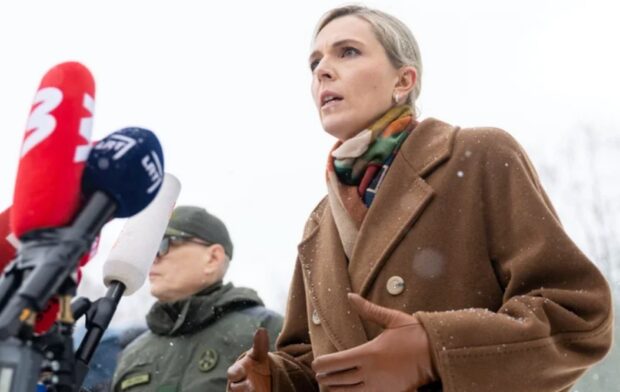Lithuania said last Friday that the Baltic state and five other NATO members neighbouring Russia had agreed to build a “drone wall” to defend their borders from “provocations”.
The plan to use unmanned aerial vehicles for protection was agreed because of security concerns in the region amid Russia’s war in Ukraine.
Interior Minister Agne Bilotaite announced the plan after talks with her counterparts from fellow Baltic states Estonia and Latvia, as well as Finland, Norway and Poland.
“This is a completely new thing, a drone wall stretching from Norway to Poland, and the goal is to use drones and other technologies to protect our borders,” she told the BNS news agency.
“Not only with physical infrastructure, surveillance systems, but also with drones and other technologies, which would allow us to protect against provocations from unfriendly countries and to prevent smuggling,” she said.
In addition to deploying drones to monitor the border, the countries would also use anti-drone systems to stop enemy UAVs.
“These are drones that allow us to control the situation from above and see much further than our surveillance systems show. But another part of the technology was also presented to protect our countries, our borders from drones used by other countries to spy on our information, to carry out provocations, to organize smuggling.”
Lithuania has already taken steps in this direction by establishing a UAV unit within its State Border Guard Service and procuring additional drones and anti-drone systems.
“As a country, we have done a lot in this direction. (…) Other countries may have to invest more, prepare more,” Bilotaite said, adding that the countries will need to assess their individual “homework” and work closely with experts to develop a comprehensive plan.
“Today we have agreed on this idea, the next step is a plan, concrete actions. (…) There is no timeframe yet when we will sit down at the technical level of the institutions, we will work when it is realistic.”
She also mentioned the possibility of securing funding from the European Union by applying together as a region.
“Of course, if we agree on common solutions, we could apply for European funds, if we apply as a region, there is a high probability that we will get funding from the European Commission (…) If it is organized, it is much more profitable, because if you participate in the negotiations as a region, you can get a better deal”.
Photo: Agnė Bilotaitė – Facebook
Sources: AFP; The New Voice of Ukraine

